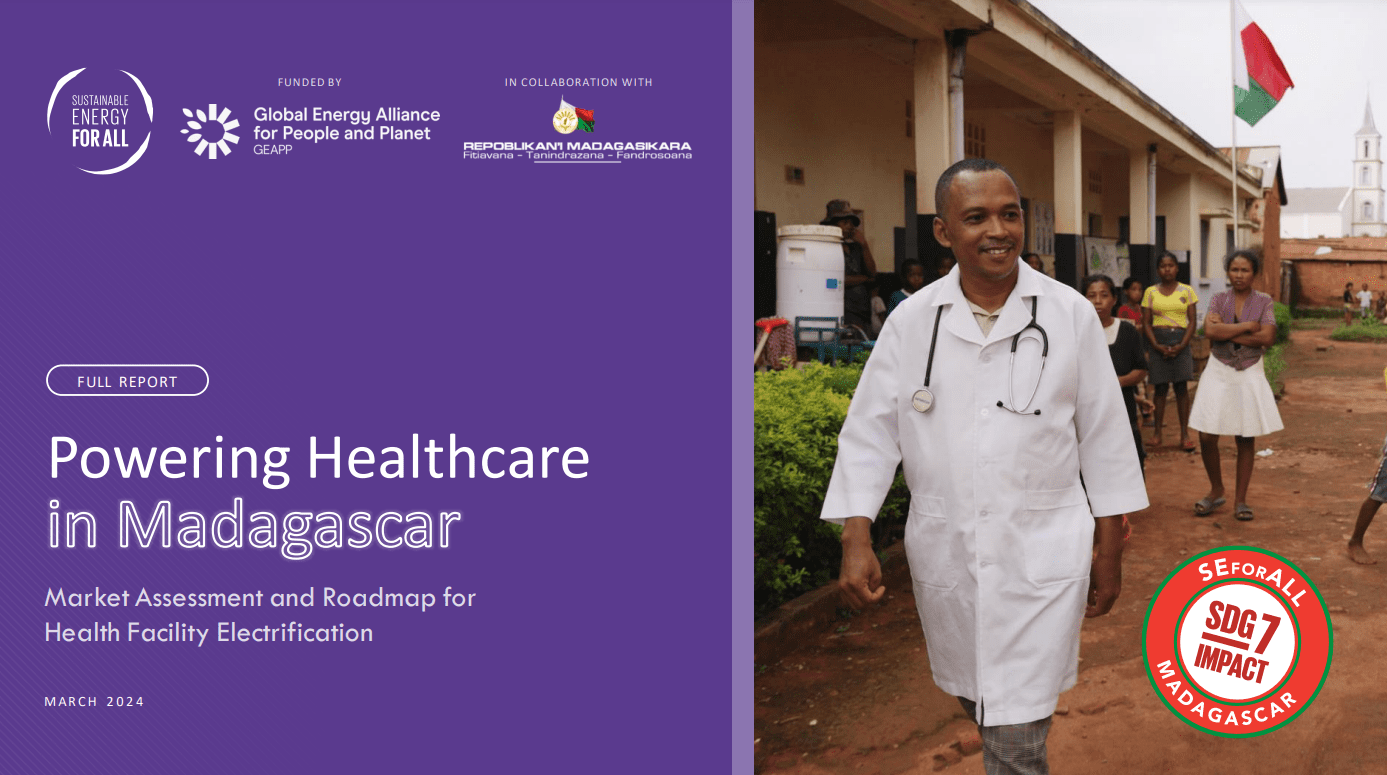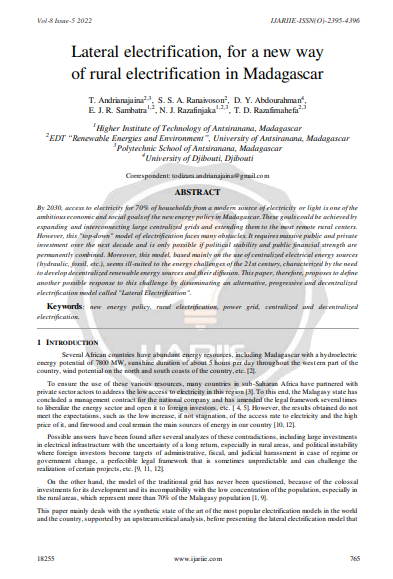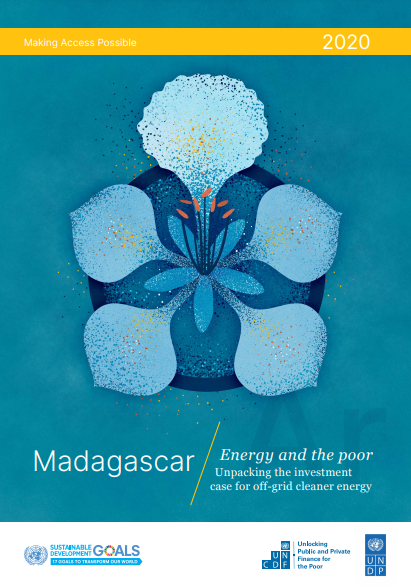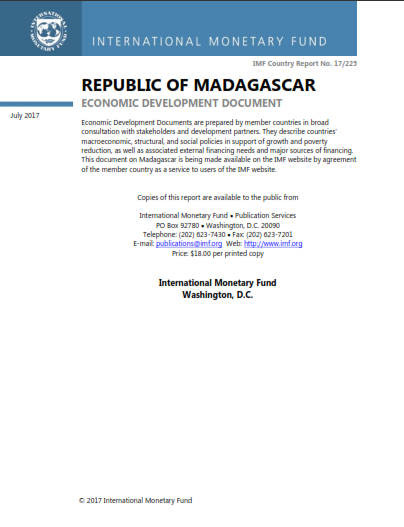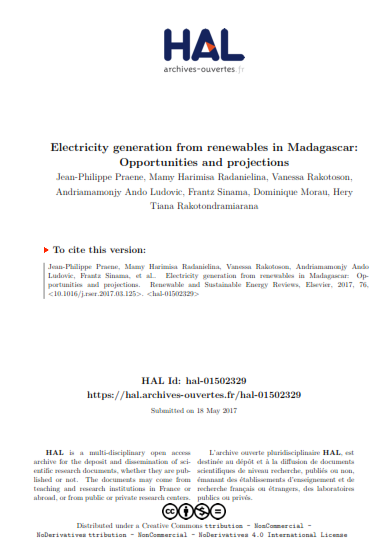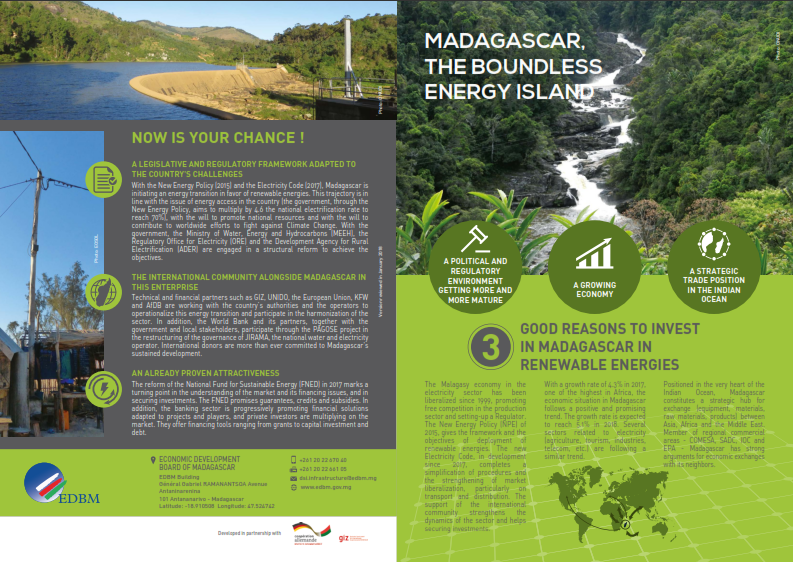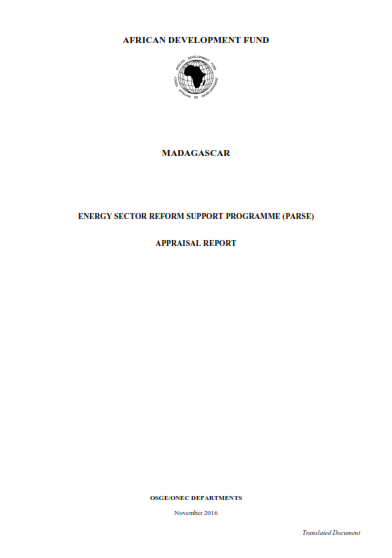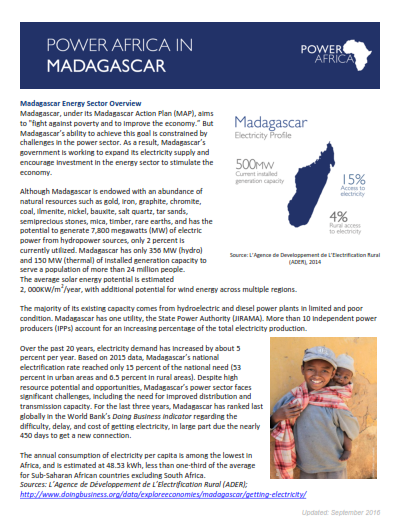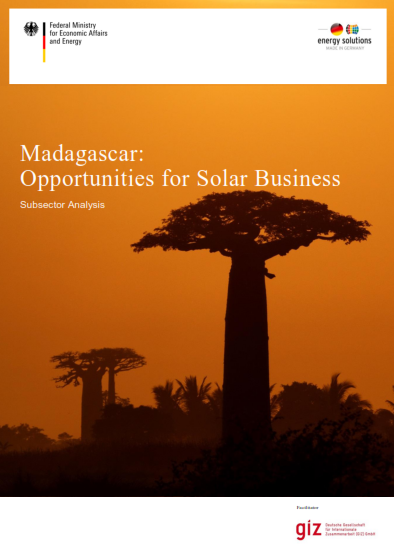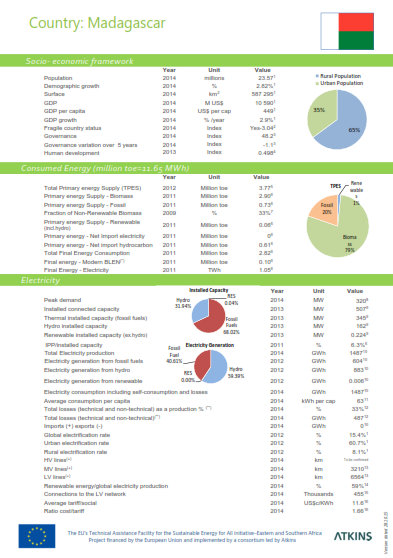We post here the relevant reports for the power sector in Madagascar. Feel free to join our efforts and share us any other you may have found. We'd be glad to add them to the list. Just sent an email to This email address is being protected from spambots. You need JavaScript enabled to view it.
Publication date: March 2024
Author: Sustainable Energy for All (SEforALL)
Description: This market assessment and roadmap was developed to inform efforts on powering healthcare facilities in Madagascar. Specifically, it aims to:
- Provide the government of Madagascar and its development partners with data on the extent of the energy deficit that persists in the country’s healthcare sector, including non-electrified and semi-electrified facilities.
- Present strategic information and implementation guidelines that the government and its partners need to allocate the investments required to implement sustainable electrification of healthcare facilities (HFs).
- Propose long-term sustainable model options, including innovative approaches for the provision of continuous and reliable electricity services. This does not involve formulating a tailored solution for each HF.
Download Report >>
Visit Website >>
Publication date: September 2022
Author: IJARIIE
Description: By 2030, access to electricity for 70% of households from a modern source of electricity or light is one of the ambitious economic and social goals of the new energy policy in Madagascar. These goals could be achieved by expanding and interconnecting large centralized grids and extending them to the most remote rural centers. However, this "top-down" model of electrification faces many obstacles. It requires massive public and private investment over the next decade and is only possible if political stability and public financial strength are permanently combined. Moreover, this model, based mainly on the use of centralized electrical energy sources (hydraulic, fossil, etc.), seems ill-suited to the energy challenges of the 21st century, characterized by the need to develop decentralized renewable energy sources and their diffusion. This paper, therefore, proposes to define another possible response to this challenge by disseminating an alternative, progressive and decentralized electrification model called "Lateral Electrification".
Download Report >>
Visit Website >>
Publication date: 2020
Author: UNDCF
Description: Although Madagascar has vast potential of renewable energy sources (hydro, solar, wind, biomass), national energy consumption and supply is low. The energy sector is characterised by low access to modern forms of energy with only a quarter to a third of adults having access. These adults largely use electricity for lighting, and not for more intensive purposes like cooking. As a result, the majority of people rely on candles and lamps for lighting, and almost all use biomass for cooking. The low level of access is likely a result of affordability issues on the demand side, but also extensive supply side issues. This includes a limited grid infrastructure that is deteriorating due to age and insufficient maintenance.
Download Report >>
Visit Website >>
Publication date: 2017, July
Author: IMF
Description: The Economic Development Paper (DDE) describes the strategy adopted by the government to reverse the trend of modest economic performance, deteriorating social conditions, and persistent poverty observed in recent years.
Download Report >>
Visit Website >>
Publication date: 2017, May
Author: HAL
Description: HAL is a multi-disciplinary open access archive for the deposit and dissemination of scientific research documents, whether they are published or not. The documents may come from teaching and research institutions in France or abroad, or from public or private research centers.
Download Report >>
Publication date: 2017
Author: EDBM
Description: Technical and financial partners such as GIZ, UNIDO, the European Union, KFW and AfDB are working with the country’s authorities and the operators to operationalize this energy transition and participate in the harmonization of the sector. In addition, the World Bank and its partners, together with the government and local stakeholders, participate through the PAGOSE project in the restructuring of the governance of JIRAMA, the national water and electricity operator. International donors are more than ever committed to Madagascar's sustained development.
Download Report >>
Publication date: 2016, November
Author: African Development Fund
Description: PARSE will have a positive impact on the entire national economy and the Malagasy population. The improved financial health of the National Water and Electricity Company (JIRAMA) will enable the State to gradually reduce subsidies granted to the latter and devote its budget to investment expenditure that can generate sustainable and inclusive growth.
Download Report >>
Publication date: 2016, September
Author: Power Africa
Description: Madagascar, under its Madagascar Action Plan (MAP), aims to "fight against poverty and to improve the economy.” But Madagascar’s ability to achieve this goal is constrained by challenges in the power sector. As a result, Madagascar’s government is working to expand its electricity supply and encourage investment in the energy sector to stimulate the economy.
Download Report >>
Publication date: 2016, August
Author: GIZ
Description: After years of political unrest, a stagnating economy and diplomatic seclusion, Madagascar is now recovering. A democratization process, international aid and relaunching the private sector concur to make the “Red Island” an attractive market for investors, both on a national and on an international level.
Download Report >>
Publication date: 2016, January
Author: EU
Description: Energy laws:
- Law no. 98-032 (1999) Reforming the electricity sector;
- Law no. 99-010 (1999) Governing the activities of the downstream petroleum sector;
- Law no. 2002-001 (2002) Creation of National Electricity Fund (FNE);
- Law no. 2004-003 (24 June 2004) on the liberalisation of the downstream petroleum sector and amending certain provisions of Law no. 99-010 (17th April 1999) governing the activities of the petroleum downstream sector;
- Law no. 2004-31 (2004) Penalties for violations of the law on the activities of the downstream petroleum sector.
Download Report >>





